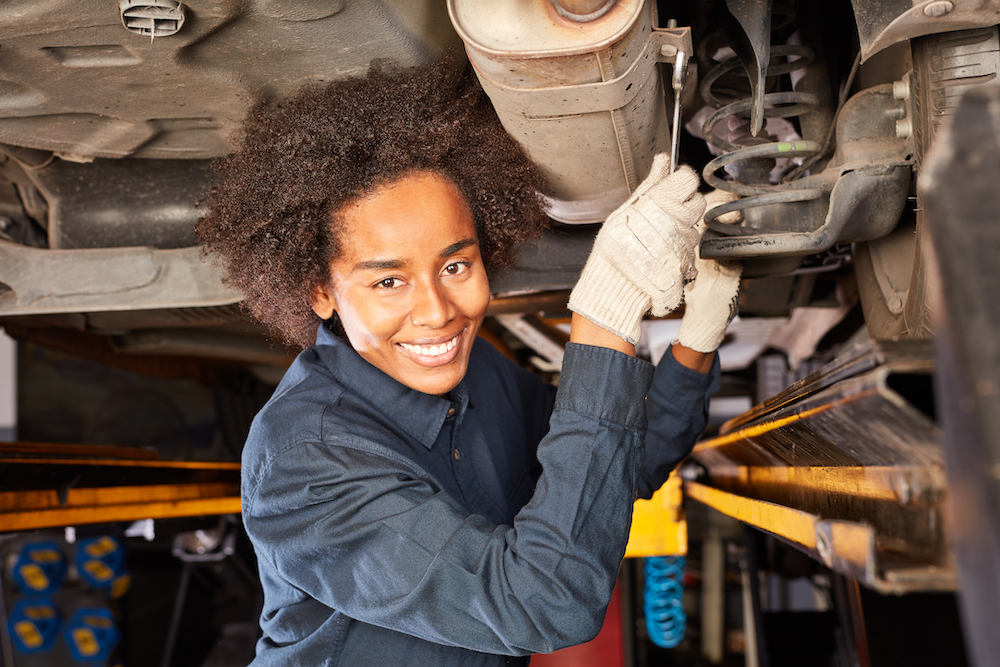A rattling noise while accelerating in a car can be caused by various factors, such as loose components or issues with the engine or exhaust system. It is essential to identify the exact source of the noise to determine the appropriate fix.
We will explore the common causes of rattling noises during acceleration and provide possible solutions to address these issues. Understanding these causes and fixes can help car owners address the problem promptly and maintain the overall performance and safety of their vehicle.

Credit: m.youtube.com
Causes Of Rattling Noise When Accelerating
When you step on the gas pedal and your car makes a rattling noise, it can be both unnerving and worrisome. This noise can indicate underlying issues with your vehicle that require attention. In this section, we will explore the common causes of a rattling noise when accelerating and provide potential fixes to help you resolve these problems.
Loose Or Damaged Exhaust System
A loose or damaged exhaust system can be a common cause of a rattling noise when accelerating. Over time, the exhaust system can deteriorate due to wear and tear, causing components like the muffler, exhaust pipe, or catalytic converter to become loose or develop cracks. When these parts are not secured properly, they can vibrate and create a rattling sound.
To determine if a loose or damaged exhaust system is causing the noise, visually inspect the system for any signs of damage or loose components. You can also try gently tapping the different sections of the exhaust system to identify any vibrations or rattling sounds. If you suspect an issue, it is best to consult a professional mechanic to properly diagnose and fix the problem. Potential fixes for a loose or damaged exhaust system may include tightening or replacing loose bolts, replacing damaged components, or welding any cracks in the exhaust system.
Worn-out Engine Mounts
Another possible cause of a rattling noise when accelerating is worn-out engine mounts. Engine mounts are responsible for securing the engine to the vehicle’s frame and reducing vibrations. Over time, these mounts can wear out, leading to excessive engine movement and rattling noises. In some cases, the engine mounts may become completely detached, causing more severe rattling sounds.
To determine if worn-out engine mounts are the culprit, visually inspect the mounts for any signs of wear, such as cracks or deformations. You can also try gently accelerating the vehicle and observing the engine movement. Excessive engine movement or vibrations may indicate worn-out engine mounts. If you suspect this is the issue, it is recommended to have the engine mounts inspected and replaced by a qualified mechanic.
Loose Or Broken Heat Shields
Heat shields are installed on various components of the exhaust system and engine to protect them from excessive heat. However, these shields can become loose or broken due to corrosion, age, or external factors. When the heat shields are loose or broken, they can vibrate when you accelerate and produce a rattling noise.
To check for loose or broken heat shields, visually inspect the shields for any signs of damage or detachment. Gently tapping on the shields may also reveal any rattling noises. If you suspect loose or broken heat shields, it is best to have them repaired or replaced. A mechanic can secure the shields properly or install new ones to eliminate the rattling noise.
Failing Timing Chain Tensioner
The timing chain tensioner is responsible for maintaining proper tension on the timing chain, ensuring it operates smoothly and efficiently. However, over time, the tensioner can fail or become worn, leading to a rattling noise when accelerating. This noise is caused by the timing chain vibrating or slapping against the engine components.
Diagnosing a failing timing chain tensioner usually requires professional expertise, as it involves inspecting the timing chain and tensioner mechanism. If a failing tensioner is suspected, it should be replaced promptly to prevent further damage to the engine. A skilled mechanic can replace the tensioner and ensure the timing chain is properly tensioned, resolving the rattling noise issue.
Damaged Drive Belt Or Pulleys
A damaged drive belt or pulleys can also be a source of a rattling noise when accelerating. The drive belt connects various engine components, such as the alternator, power steering pump, and air conditioning compressor, to the engine’s crankshaft. If the drive belt is worn, cracked, or loose, it can create a rattling noise as it slips or vibrates against the pulleys.
To check for a damaged drive belt, visually inspect the belt for any signs of wear, cracking, or looseness. If the belt appears damaged, it should be replaced. Additionally, inspect the pulleys for any misalignment or damage. If a pulley is damaged, it may need to be replaced. Having a professional mechanic inspect and repair the drive belt and pulleys can help eliminate the rattling noise and ensure proper engine performance.

Credit: gogirl.co.uk
Fixes For Rattling Noise When Accelerating
When your car makes a rattling noise while accelerating, it can be worrisome and indicate various underlying issues. Fortunately, there are several fixes for this problem, which can help resolve the rattling noise and get your car running smoothly again.
Tightening Or Replacing Exhaust Components
In many cases, a rattling noise when accelerating could be due to loose or damaged exhaust components. Check the exhaust system for any loose or broken parts, such as clamps, brackets, or hangers. Tighten or replace these components as needed to eliminate the rattling noise.
Replacing Engine Mounts
Worn-out or damaged engine mounts can also lead to rattling noises during acceleration. Inspect the engine mounts for signs of wear or damage, such as cracks or excessive movement. If necessary, replace the engine mounts to reduce the rattling noise and ensure proper engine stability.
Repairing Or Replacing Heat Shields
Heat shields are designed to protect various components from excessive heat and prevent rattling noises. If you notice a rattling noise coming from underneath your car when accelerating, the heat shields may be loose or damaged. Repair or replace the heat shields to eliminate the rattling noise and prevent potential damage to nearby components.
Replacing Timing Chain Tensioner
A faulty timing chain tensioner can cause a rattling noise from the engine compartment when accelerating. Inspect the timing chain tensioner for any wear or malfunction. If necessary, replace the timing chain tensioner to restore proper tension and eliminate the rattling noise.
Replacing Drive Belt Or Pulleys
Worn or damaged drive belts and pulleys can lead to a rattling noise when accelerating. Check the drive belt and pulleys for signs of wear, cracks, or misalignment. Replace any worn components to ensure proper operation and eliminate the rattling noise from your car.

Credit: www.dubizzle.com
Conclusion
A rattling noise when accelerating can be a sign of various issues with your car. Regular maintenance and addressing the problem promptly are key to preventing further damage. By understanding the potential causes and fixes outlined in this post, you can better address any rattling noise in your vehicle to ensure a smoother and safer driving experience.


